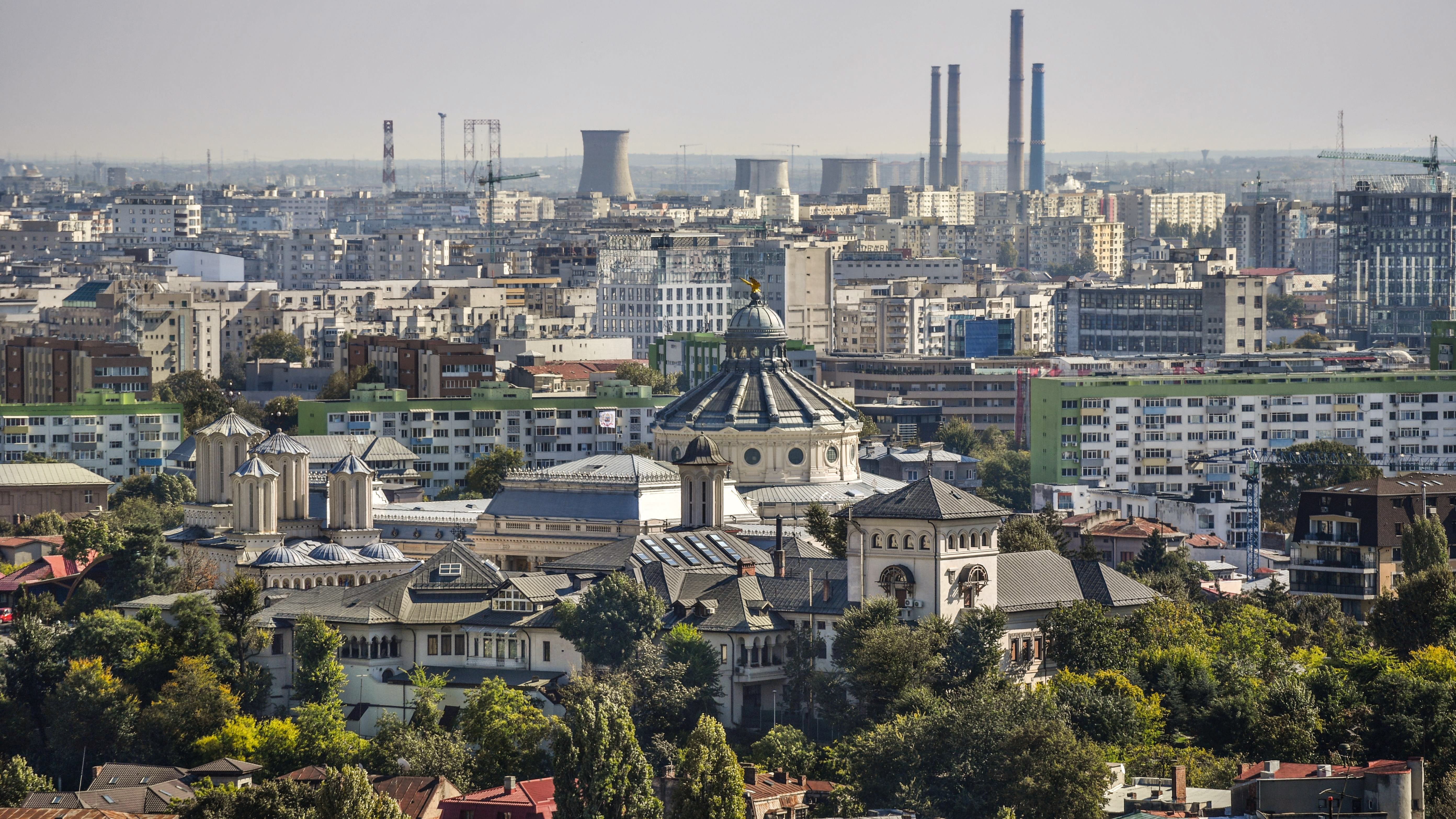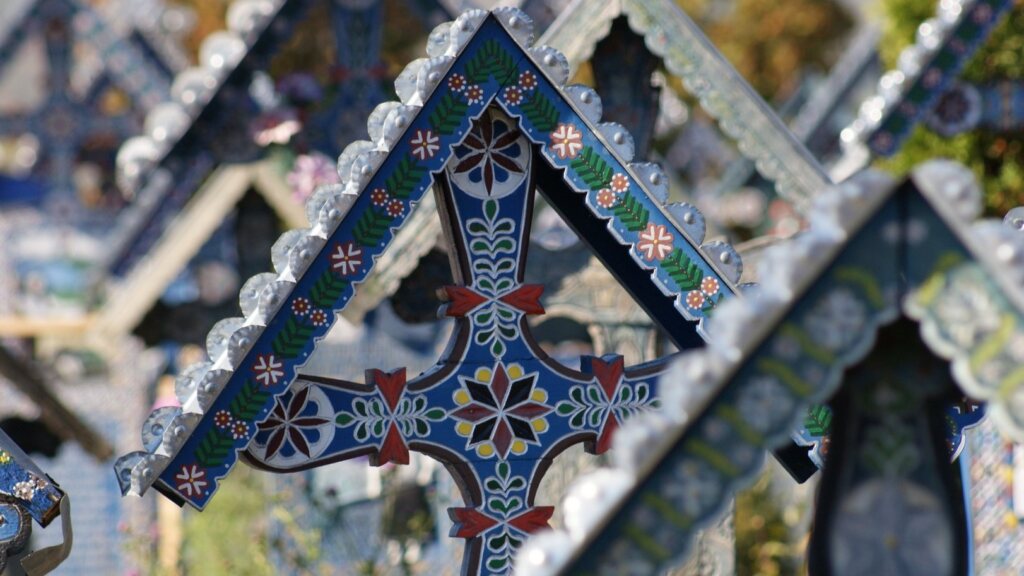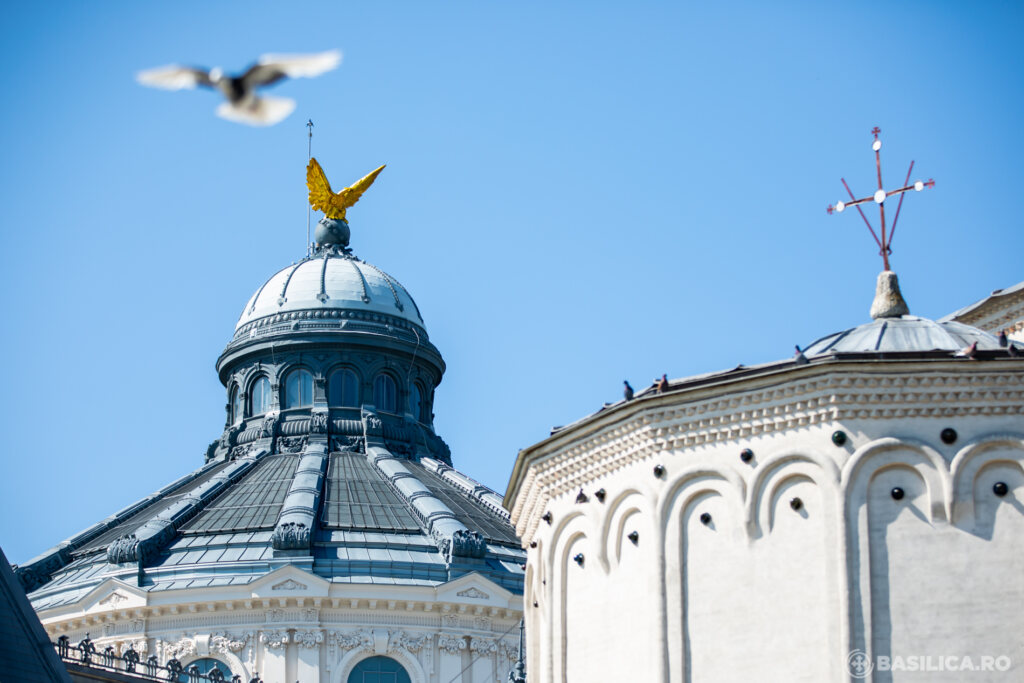Because sometimes the Romanian media refers to the glorification of the persons who suffered persecutions during the communist regime in our country or even died in the communist jails, we provide the following information:
The canonization of Saints has the role to profess, to strengthen and to convey the true faith so as to guide the faithful on the path of salvation and of gaining saintliness.
One of the essential conditions to glorify Saints is their undoubted faith kept until death (Revelation 2:10).
In this regard, not all those who died in prisons died for the Orthodox faith. Therefore, there is a difference between a hero – who suffered and died for the freedom or in defence of the motherland – and a Saint – who witnessed to the faith until death.
Hence, the glorification of Saints is not performed for political or patriotic reasons, but for the fact of living and witnessing the true faith in times both of peace and persecution.
The persons who suffered for their faith during communism are constantly commemorated or honoured by the Church through their remembrance during every Divine Liturgy, when the Church prays for ‘the blessed in their falling asleep Romanian heroes, soldiers and fighters of all times and places, who sacrificed themselves on battlefields, in concentration camps and in prisons for the defense of the motherland and of the ancient Orthodox faith, for national unity, for the freedom and dignity of the Romanian nation.’
In addition, the Commemoration Day of Anti-Communist Political Prisoners is observed every year on March 9, when the Church commemorates the Forty Martyrs of Sebaste, and the National Day for the Victims of Communism is observed on May 14.
The Romanian Patriarchate particularly paid an intense and extensive homage to those who suffered during communism in 2017, a year declared by the Holy Synod of the Romanian Orthodox Church as Solemn Year of Patriarch Justinian and of the defenders of Orthodoxy during communism.
‘The example of their lives full of devotional deeds and sacrificial acts is a permanent source of light and renewal for today’s Christian life, and their commemoration of this year calls us to be confessors of Orthodox faith, founders of holy places and of Christian culture, urges that we have humble and merciful love in the soul, as well as worthy works of confessing the Christian faith today,’ reads the Solemn commemorative act of the Holy Synod of the Romanian Orthodox Church, made public on October 27, 2017.
In this context, the Romanian Patriarchate published important volumes dedicated to those who confessed Christ in communist jails (for example The Dictionary of confessing Romanian Orthodox clergy and laypersons in communist detention, 1945-1964, coordinated by Adrian Nicolae Petcu; Patriarch Justinian Marina and the defenders of Orthodoxy during communism, etc.).
Also, shows and theatre plays were performed being inspired by the suffering of the passion-bearers in communist prisons, symposia and conferences were organized, all of them having a content meant to recover the remembrance of the exemplary moral status of the heroic Romanian fighters in our recent history.
However, unlike heroes and patriot martyrs of certain historical moments, a Saint represents a constant and luminous example of steadfast faith, sincere repentance and holy life.
The canonization process, as recognition of the saintliness of a person, is therefore laborious and long-lasting, because proof of the certainty of the true faith and the holiness of life of the one proposed for canonization must be provided, as well as the proof that popular devotion to that person is not superficial and temporal, but profound and perennial, verified over time.
In conclusion, we must constantly remember all Romanian heroes, although not all of them are listed as Saints in the calendar.
Nevertheless, the glorification of Saints must not be made by the Holy Synod under the pressure of the moment or in haste, but in a spirit of patience, wisdom, sound documentation and discernment, since true holiness is given to people humbled by God Himself who is the Only Holy, and the Church only recognizes and proclaims solemnly this saintliness given to the people of God.
In this respect, both known and unknown Saints, that is both canonized Saints (added to the calendar) and those still not canonized by the Church, are venerated with piety and invoked in prayer on the Sunday of All Saints and on the Sunday of All Romanian Saints.
Some Saints were included in the Synaxaria or the church calendar ten or twenty years after their death, and others a century or several centuries after death, according to the secret work of God.
Therefore, the declaration of new Saints by the Holy Synod of the Romanian Orthodox Church can bring joy to the faithful if it is a documented work lighted by prayer and humility, but even more urgent and more necessary than any canonization is the cultivation of holiness in our personal lives, because it brings us salvation or eternal gladness (Hebrews 12:14).
Press Office of the Romanian Patriarchate
Photography courtesy of Basilica.ro






